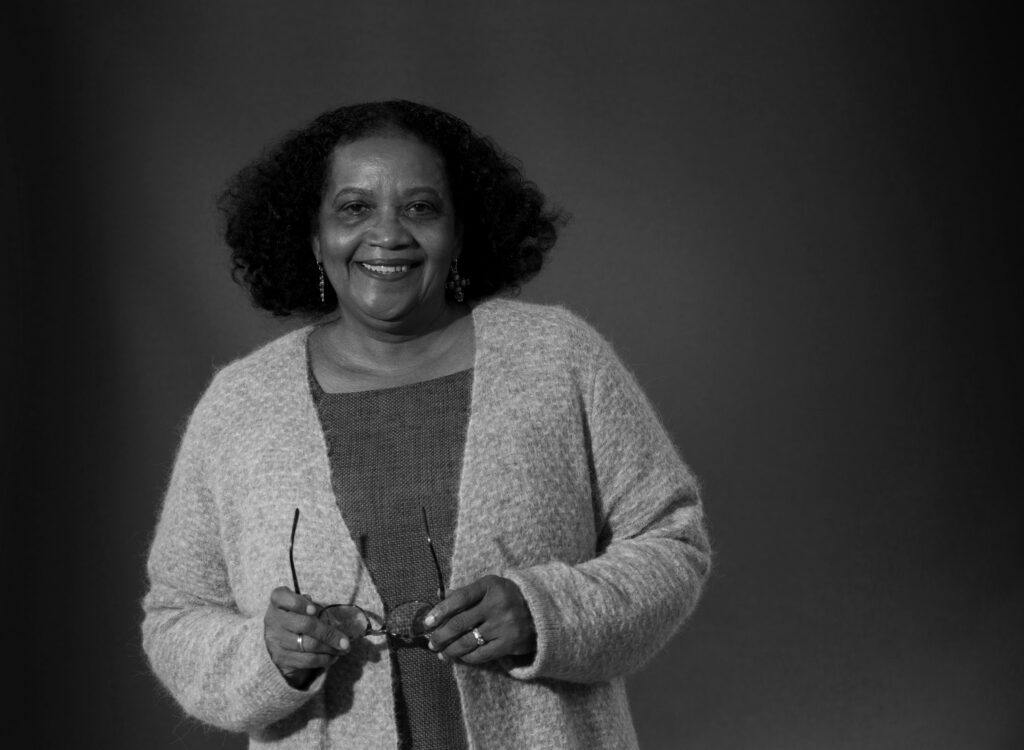Lorna Goodison’s first book of essays can be read as a rough map of her literary peregrinations. A trained painter and copy editor, Goodison is better known as a short story writer and, especially, a celebrated poet. The first female poet laureate of Jamaica and a winner of the Queen’s Gold Medal for Poetry, she is a diasporic voice whose best work is steeped in both English literary tradition and Jamaican dialect.
With twenty-seven essays that frequently mix poetry and prose and that range in length from just a few pages to nineteen, Redemption Ground speaks to three main issues: the author’s struggle against the sinister biases of a colonial education, her encounters with racism, and her discovery of a transformative path in life. The first piece is set in the spring of 1972 in London, England, where Goodison and her friend Helen, both “young and swift of gait” and eagerly looking for sweet rolls known as Bath buns, meet several Irishmen. Together, the group toasts the colonial experience with duelling poems: William Butler Yeats’s “The Fiddler of Dooney” for the Irish and Evan Jones’s “The Song of the Banana Man” for the Jamaicans. “I guess this made sense,” Goodison writes, “because both poems were about ordinary people who were sure of themselves, sure of what they did, where they belonged, what their purpose in life was.” Although she was still uncertain of her own direction and purpose, hearing Yeats’s ballad inspired her to be “someone whose artistry makes people dance like a wave of the sea.” Unfortunately, the artistry that she went on to manifest so eloquently in her strongest poetry collections and in From Harvey River, her outstanding memoir from 2007, is not much evident in this latest book.
Educated at St. Hugh’s High School for Girls, just outside Kingston, Jamaica, Goodison was brought up on the work of William Wordsworth, John Masefield, Alfred Noyes, Rudyard Kipling, Alfred Lord Tennyson, Walter de la Mare, John Keats, and the other usual suspects found in something like Palgrave’s Golden Treasury. She also had an exceptional teacher from England who introduced her to T. S. Eliot before she discovered George Herbert and John Donne. Sylvia Plath and Edna St. Vincent Millay became favourites, but she loathed Edith Sitwell and Roy Campbell for their racist tropes and imagery. She learned to be sympathetic to Wordsworth only years after she was forced “to privilege his poem about daffodils above all other poems about flowers.” And after she was befriended by Derek Walcott and discovered Louise Bennett (Miss Lou, famed for her work in patois), she developed deep pride in Caribbean poetry.
In Redemption Ground, Goodison draws on ballads, calypsos, sonnets, and odes, reliving her very colonial literary connection while also drawing on local vernacular. This approach speaks to her range in diction, dialect, and tone. Yet many of her own poems that she includes among these essays are disappointingly lacklustre (apart from two or three, especially a wonderful one inspired by a line from Gerard Manley Hopkins), marked by explicit declaration rather than melody. Her elegy for Sandra Bland, a Black woman who was found hanging in a Texas jail cell, is, baldly stated, simply bland.

The poet Lorna Goodison attends the Edinburgh International Book Festival in August 2018.
Gary Doak; Alamy
The essays encompass childhood memories and experiences as a wife and mother, as well as themes of travel, loss, and prejudice. Goodison is tender and compassionate in “The Groom,” poignant in “Native(s) with the Warmth,” and bravely defiant in “Racism.” Her settings vary: a cinema in Jamaica, the Bottom Line club in New York, a hair salon in Paris, a hospital bed in Calgary. Together, they produce varied anecdotes and reflections about intimacies.
The general style is casual or informal with an easy orality, but the tone shifts, from lighthearted, satirical, and fantastical to reverential and meditative. The slightest pieces are contaminated by shameless name-dropping, as in “People I’d Like to Meet,” and unnecessary bromides, as in “Hurricanes.” Even some essays about poetic eminences fall flat in places, as when Goodison writes that “Keats is all about truth and beauty” or when she states that Walcott “was all about beauty,” before adding a superficial generalization that “the entire body of his work can be read as a deep and wide engagement with beauty in all its manifestations.” (That’s hardly enough to make a compelling case for Walcott, whom I regard as one of the greatest poets of the twentieth century.)
Nevertheless, palpably present in Redemption Ground are Goodison’s full-hearted acknowledgements of poems, films, books, and especially hymns that helped her develop her literary and spiritual identity. She derives her title from a place in the Jamaican capital that was “once a cholera cemetery that became a market by day and a nocturnal meeting place for faith-keepers of African spirituality and foundation builders of the Rastafarian religion such as Leonard Howell and Joseph Nathaniel Hibbert.” Women also gathered: “women whose names I do not know, but they were there and engaged in the active Redemption of their people through the uncompromising rejection of mental slavery.”
Goodison used to hear hymns sung at political gatherings, while her mother relied on them to get herself through the day, singing in a comically peculiar manner. Finishing this collection, a reader may well feel that hymns — one might even call them sung poems — were what left Goodison malleable, open to serving whatever it was that poetry and prose bade her do.
Keith Garebian has published thirty books and five chapbooks, including the poetry collections Three-Way Renegade and, most recently, Stay.

